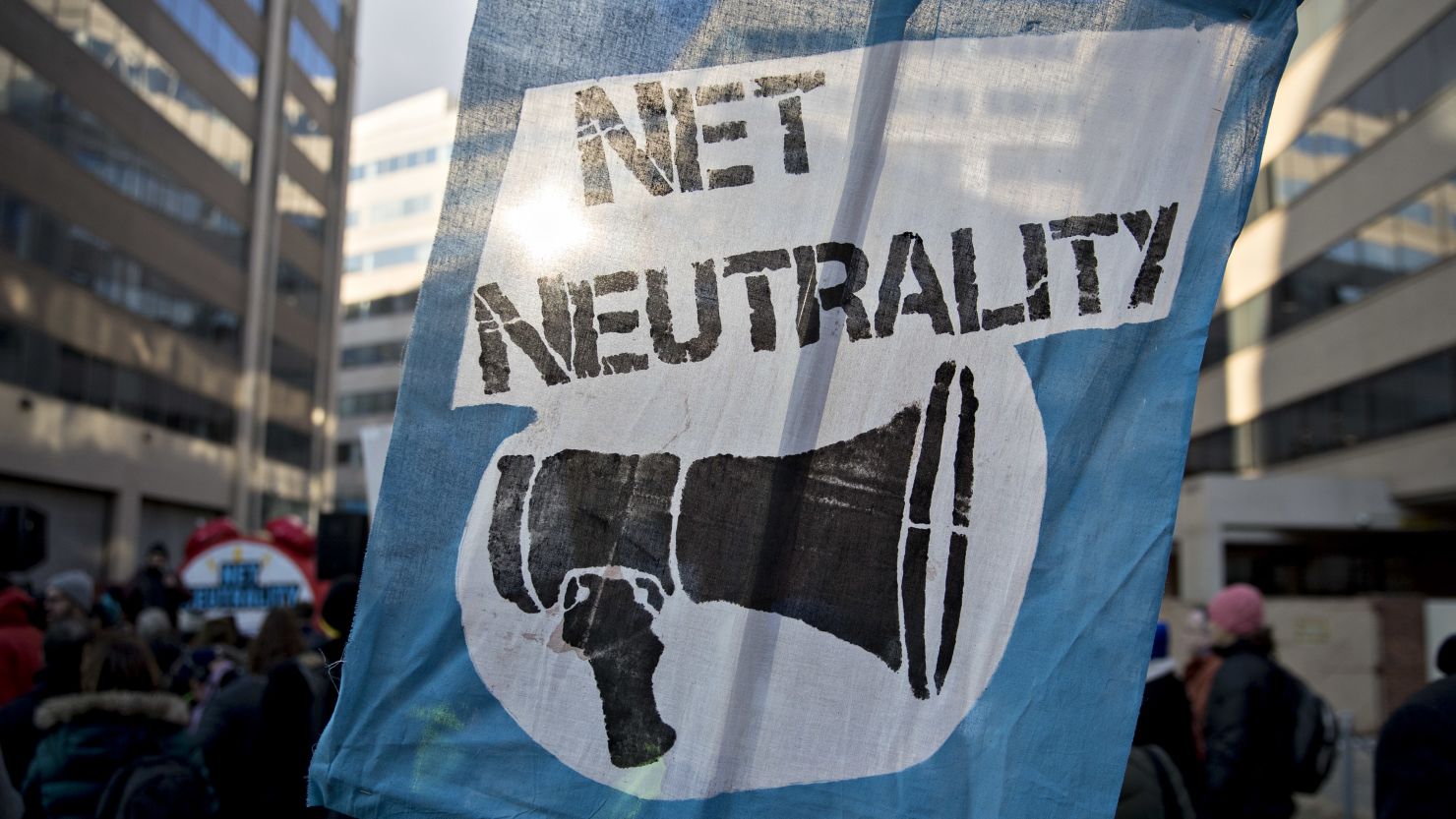The US government on Thursday banned internet service providers (ISPs) from meddling in the speeds their customers receive when browsing the web and downloading files, restoring tough rules rescinded during the Trump administration and setting the stage for a major legal battle with the broadband industry.
The net neutrality regulations adopted Thursday by the Federal Communications Commission prohibit providers such as AT&T, Comcast and Verizon from selectively speeding up, slowing down or blocking users’ internet traffic. They largely reflect rules passed by a prior FCC in 2015 and unwound in 2017.
The latest rules?show how,?with a 3-2 Democratic majority, the FCC is moving to reassert its authority over an industry that powers the modern digital economy, touching everything from education to health care and enabling advanced technologies such as artificial intelligence.
With Thursday’s party-line vote, the FCC redefined internet service as similar to legacy telephone lines, a sweeping move that comes with greater regulatory power over the broadband industry. And the FCC said it would step in to override state or local policies that conflict with the federal net neutrality rule.
Leading FCC officials have said restoring net neutrality rules, and reclassifying ISPs under Title II of the agency’s congressional charter, would provide the FCC with clearer authority to adopt future rules governing everything from public safety to national security.
Some of the issues the FCC will be further empowered to address after the change include spam robotexts, internet outages, digital privacy and expanding high-speed internet access, FCC Chairwoman Jessica Rosenworcel said when she first announced the proposal in September.
On Thursday, Rosenworcel added that the vote would also prevent internet providers from selling Americans’ personal data or sharing it with tech companies to train artificial intelligence models.
“The action we take here is good for consumers, public safety, national security and network investment,” Rosenworcel said ahead of the vote.
The vote marks the latest twist in a years-long battle between regulators on the one hand, who say consumer protections are needed to ensure all websites are treated equally, and ISPs on the other who describe the rules as heavy-handed government intervention.
For years, consumer advocates have said that without net neutrality rules in place, ISPs would be free to charge websites and consumers extra fees — the equivalent of toll lanes for the internet — in order for some websites to be delivered faster than others. At a societal scale, that could give ISPs enormous power to shape what consumers can see?and access on the internet, consumer groups say, and entrench their dominance in markets that lack competition.
“Broadband is a telecommunications service and should be regulated as such,” said Justin Brookman, director for technology policy at Consumer Reports. “The Title II authority will ensure that broadband providers are properly overseen by the FCC like all telecommunications services should be. Whether it is throttling content, junk or hidden fees, arbitrary pricing, deceptive advertising or unreliable service, broadband providers have proven over the years that without proper oversight, they will not hesitate to use their power to increase profits at the expense of consumers.”
The broadband industry argues there is no risk of that happening because consumers would revolt. ISPs add that during the Trump and Biden administrations when the net neutrality rules were not in effect, providers did not engage in that type of content-based network manipulation. They have also claimed that the regulations could discourage them from building high-speed networks, although some academic research has shown little support for that claim.
“These 400-plus pages of relentless regulation are proof positive that old orthodoxies die hard,” said Jonathan Spalter, CEO of USTelecom, a trade association representing internet providers. “This is a nonissue for broadband consumers, who have enjoyed an open internet for decades. Rather than pushing this harmful regulatory land grab, policymakers should keep their eyes on the real-world prize of building opportunity for everyone in a hyperconnected world.”
US policies for network providers have flip-flopped multiple times over the past decade with every change in administration in Washington.
Republican commissioners at the FCC blasted Thursday’s vote, accusing its Democratic leadership of touching “the third rail of communications policy.”
“The internet in America has thrived in the absence of 1930s command-and-control regulation by the government,” said FCC Commissioner Brendan Carr, describing the new rules as a power grab. “The FCC has identified no gap in national security,” he added, that the agency’s move would help fill.
Industry groups are widely expected to challenge the rules in court, in a significant new test of the federal government’s power.
In past legal battles over net neutrality, courts have deferred to the FCC, ruling that it has wide latitude to regulate ISPs as it sees fit using the authority it derives from the agency’s congressional charter, the Communications Act of 1934.
But courts’ longstanding deference to expert agencies appears increasingly in doubt as a conservative-leaning Supreme Court has sounded an increasingly skeptical tone on the reach of federal executive authority.
As a result, the outcome of a legal challenge to the FCC’s net neutrality rules could have potentially broad ramifications for other US regulatory bodies, not just the FCC.
This story has been updated to clarify the FCC has previously said it would intercede in state and local policies that conflict with its net neutrality rule.






